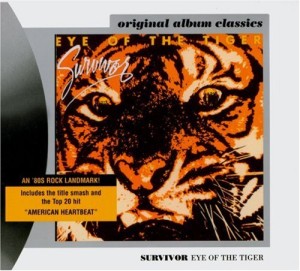I woke up this morning to the music from Episode III playing on the clock radio. What’s odd is that I recognized it immediately despite the facts that I had not listened to the soundtrack, and the section I heard was all new music. None of the recurring themes from the other films was present, and yet it was unmistakably not only John Williams, but Star Wars. I let it run just to be sure, waiting for a familiar theme or the announcer’s voice (can you call someone on a classical station a DJ?), and sure enough they identified it as “the title theme from Star Wars: Revenge of the Sith.”
Category: Music
Tori Concert: Back to Basics
Two weeks ago (April 25, specifically) we went to a Tori Amos concert in LA. It was a vastly different experience from the others we’ve been to. You see, she started out as basically her and a piano, and each album has added more and more layers of instruments. It always reminds me of a scene in Death: The Time of Your Life (Neil Gaiman has been friends with Tori since she was working on Little Earthquakes) in which Foxglove’s manager(?) is explaining that as she gets more popular, they have to book bigger and bigger venues, and beyond a certain size just a girl and her guitar isn’t going to cut it: she needs to hire a band.
Well, the “Original Sinsuality” tour provided some clues going in: It was a short tour, the venues—in this case UCLA’s Royce Hall—were comparatively small (which is why the show sold out in 10 minutes), and it was named after a “quiet Tori” song. She dispensed with the band entirely. It was just Tori Amos, a grand piano, two kinds of organs and another keyboard I couldn’t quite identify. We heard songs you never hear in concert (“Yes Anastasia,” “Doughnut Song”) or wouldn’t expect to (“Toast”), even when she takes a break from the band and does a piano set.
So, onto a review: Continue reading
The iPod Shuffle is a success
I stand corrected. I figured the iPod Shuffle would be a joke, but the headline speaks for itself: Shuffle grabs 58% of flash player market.
Survivor: Mac OS X
In checking my pre-order status for Mac OS X 10.4 Tiger, I noticed this customer recommendation:

 I assumed it was yet another book about the OS timed to come out just as people would be interested. No, it’s the 1982 rock album by Survivor, featuring the well-known Rocky III theme…which has now lodged itself firmly in my head.
I assumed it was yet another book about the OS timed to come out just as people would be interested. No, it’s the 1982 rock album by Survivor, featuring the well-known Rocky III theme…which has now lodged itself firmly in my head.
It worked for DIVX, right? (Oh, wait…)
You know, when Napster announced its subscription music plan, I never gave it a second look. Not because I assumed it wouldn’t work with my Linux box or Katie’s Mac, but for one simple reason:
No matter how many songs you “buy” on the plan, once your subscription lapses, they’re all gone.
Want to stop paying $15/mo? Say goodbye to your music.
Napster goes out of business? Say goodbye to your music.
On the other hand, suppose I’ve bought a bunch of songs from iTunes at 99¢ each, and I decide I don’t want to buy any more from them? No problem. If the marketplace changes two years from now and Apple decides to abandon the iTunes music store, I can still listen to songs I bought from them.
Amazingly, some people still need this explained to them. John Gruber of Daring Fireball writes, “I thought this was obvious, but, judging by my email, there seems to be a fair amount of confusion…” Forget the math, do the logic first!
There is one flaw in Gruber’s logic regarding CDs vs. subscription music: while I expect CDs will be playable over the next decade or two, eventually they will go the way of vinyl records. However, if I were to bet, I’d expect my CD collection will be playable long after Napster To Go has, shall we say, gone.
OK, that was weird
I’m listening to Evanescence’s Fallen and skimming this week’s link-checker report. Apparently the Taco Belle Amy Acker fan site was unreachable at the time it was checked, but it’s up now. So I started reading some of the interviews on the site, noticing they were all pre-Illyria…. at which point the album gets to “My Immortal.”
Cry me a river
So Apple is ticked off at Real’s reverse-engineering to let people buy music from Real and play it on an iPod. Apple has threatened DMCA sanctions and all but promised to deliberately break it in the next software update.
Excuse me? In general I like Apple, but their insistence on locking the iPod to iTunes and iTunes alone is short-sighted. When people hacked up a way to use an iPod on Windows, they first licensed the software, then wrote iTunes for Windows. iPod sales have tripled to the point where they may soon outsell Macintoshes. This could never have happened if Apple had kept the iPod Mac-specific.
I’m reminded of the many times Microsoft has altered its file-sharing protocol to break compatibility with Samba, the package that allows Linux, BSD, and now Mac OS X to connect to Windows networks.
The classic analogy is getting a car that can only run on certain roads. So someone’s found a way to let the iPod drive some different roads. But Apple still sells as many iPods. They might even sell more (as when it gained Windows compatibility). Why the accusations of hacking, why the legal threats, and why the determination to keep the iPod locked to their own roads?